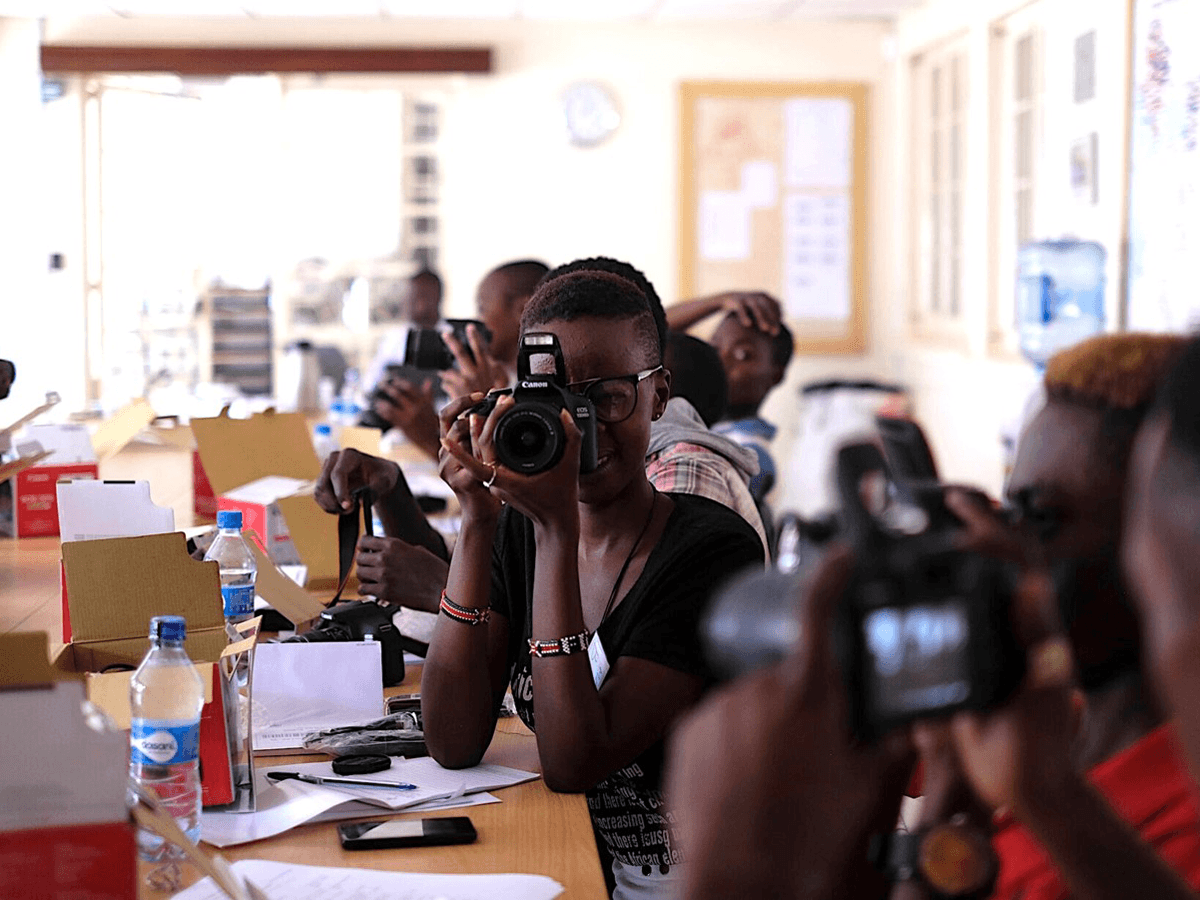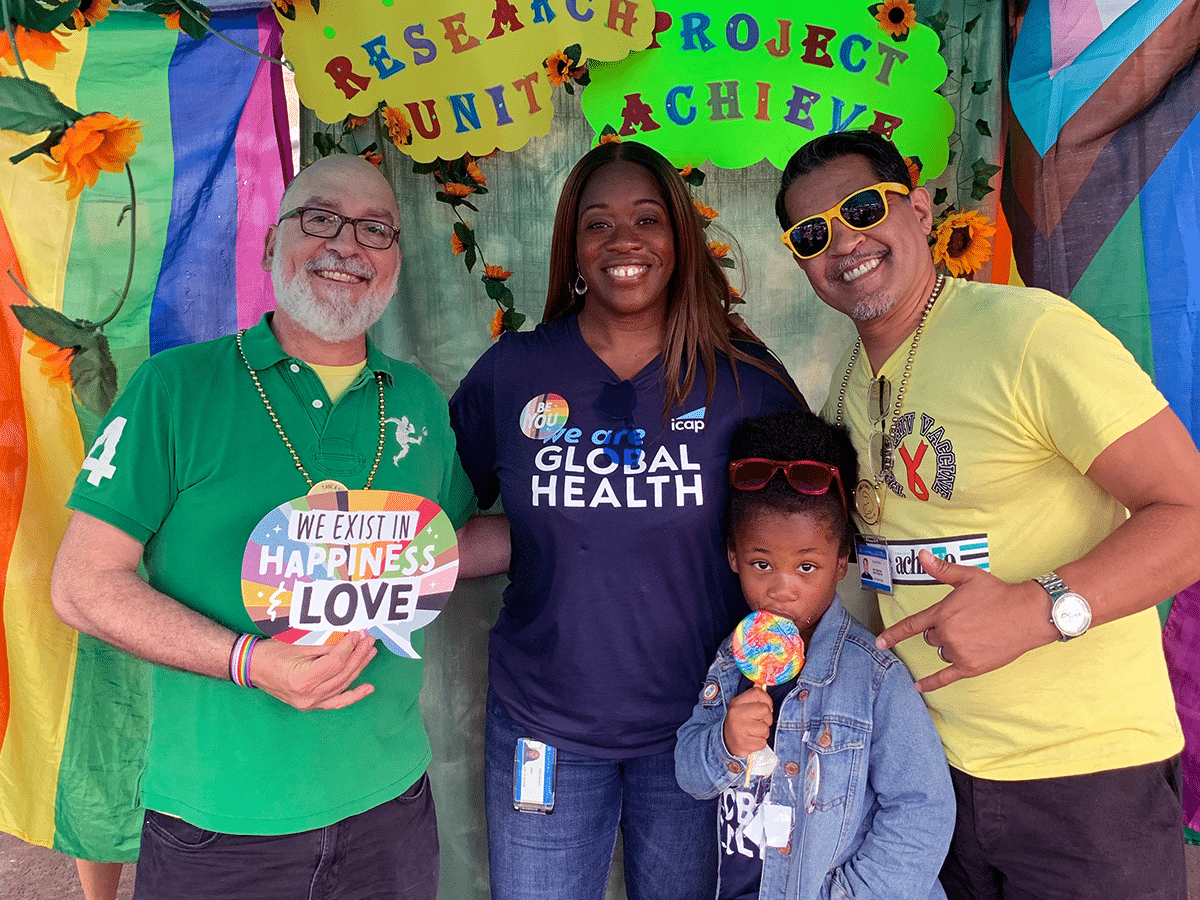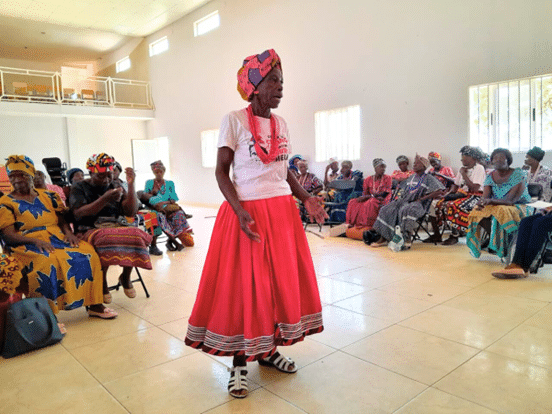Some of the most effective actions to improve health and well-being lie in sectors beyond health services, like sports and the arts. This is especially true for adolescents and young adults, as they form their identities and explore ways to express themselves.
That’s why ICAP’s New York and Kenya offices recently collaborated with New York-based photographer Amy Bedik, Columbia University’s School of Journalism, and ICAP partner the Jaramogi Oginga Odinga Teaching and Referral Hospital (JOOTRH) to create and execute a five-day photography workshop for youth living with HIV in Kisumu, Kenya. The workshop, which ran from April 16-20, focused on the photography of people, places, and things, and included young people aged 15-21 years who attend the adolescent HIV clinic at JOOTRH.
“The purpose of the workshop was to provide the participants with an opportunity to explore photography as a medium for self-expression and to learn to use a digital camera,” said Elaine Abrams, MD, senior research director at ICAP and the project’s principal investigator. “It allowed the young people to make pictures as a way to express themselves and to see their friends, families, and local environs through a different lens.”
The first four days focused on educational instructions and field practice; on the fifth and final day, ICAP held a photo exhibition to celebrate the completion of the workshop with the participant’s family, friends, and project staff.
“Using a camera was one way to express my feelings,” said Mercy, one of the participants. “Taking photos every day made me feel connected to everything around me. It let me interact with people, nature and buildings.”
Workshop leader Amy Bedik collaborated with ICAP’s Elaine Abrams and Columbia University Mailman School of Public Health’s Melissa Reyes with input from ICAP in Kenya’s Doris Naitore to create a curriculum that was custom-made for adolescents and youth, covering fundamentals on the use of a camera and photography techniques. Kenyan photojournalists Biko Wesa and Tony Karumba participated as visiting artists during the workshop, and Columbia School of Journalism student Bunni Elian provided support as the workshop assistant.
The World Health Organization (WHO) recognizes that meaningful engagement in care by adolescents and youth living with HIV can significantly influence their health. A growing body of evidence purports the use of photography as an effective medium that engages and empowers the photographer to shed light on how they view themselves and their community.
Since 2006, ICAP has provided a range of successful service and research programs focused on adolescents and youth living with HIV. ICAP in Kenya provides a comprehensive package of care for adolescents, including HIV testing, treatment, and services related to sexual and reproductive health and psychosocial support. They also support adolescent-friendly clinics that feature a dedicated clinic day for adolescents and trained staff, as well as social support and linkage to care.
At the final day’s photo exhibition, the adolescents proudly displayed their photographs as family, friends, staff, and other guests—including the Kisumu County Minister for Health—admired their work. Each participant received a folder of his or her own photographs and a certificate to recognize their completion of the workshop.
“[My photos express] different emotions, expressions from people from the ghetto,” said another participant, Velma O. “[There is] happiness, sadness, but above all we have good, green vegetation that symbolizes growth, blossoming which indicates a good ‘tomorrow.’”
ICAP working with the Columbia University Global Center in Nairobi to plan a second exhibition of the participants’ photographs, and a second workshop is being planned later in the year.
Learn more about ICAP’s work in Kenya.
View a multimedia presentation of photos from the workshop on Adobe Spark








